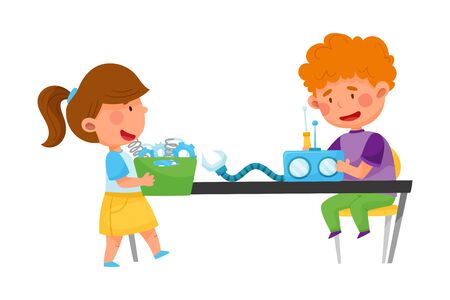What Is Developmental Delay?
Developmental delay is a term used to describe when a child does not reach the expected milestones of development at the typical age. These milestones refer to important skills such as walking, talking, social interaction, and learning that most children achieve within a certain time frame. Every child grows and learns at their own pace, but if progress is noticeably behind compared to peers, it may indicate a developmental delay. There are several types of developmental delay, including delays in speech and language, motor skills (such as crawling or holding objects), cognitive abilities (thinking and problem-solving), and social or emotional skills. For UK parents, understanding these key areas can help in recognising early signs and seeking appropriate support for their child. Early intervention is essential, as many children who experience delays can make significant progress with the right guidance and resources. Recognising what developmental delay means and being aware of common developmental milestones is the first step in supporting your childs growth and well-being.
2. Recognising Signs and Early Identification
Spotting the early signs of developmental delay is crucial for ensuring children receive the right support at the right time. In the UK, timely recognition and assessment can make a significant difference in a childs future learning, social skills, and overall wellbeing. Parents and carers are often the first to notice when something might not be progressing as expected, so understanding what to look out for is key.
Common Signs of Developmental Delay
Every child develops at their own pace, but there are certain milestones most children reach by specific ages. Missing these may indicate a delay. Below is a general guide to help identify areas of concern:
| Developmental Area | Possible Signs of Delay |
|---|---|
| Communication and Language | Limited babbling or speech by age 2, difficulty understanding instructions, lack of gestures like pointing or waving |
| Motor Skills | Trouble sitting, crawling, or walking at typical ages; difficulty holding objects or using cutlery |
| Social and Emotional | Avoids eye contact, struggles to play with others, limited response to social interactions |
| Cognitive (Thinking) | Difficulty following simple directions, problems with memory or problem-solving tasks |
UK Milestone Resources
The NHS provides helpful resources on typical child development milestones. If you have concerns, referring to your childs Red Book (Personal Child Health Record) can also help track progress and prompt discussions with your health visitor or GP.
The Importance of Early Assessment in the UK Context
Early identification opens doors to assessments and interventions that can greatly improve outcomes. In the UK, health visitors routinely screen childrens development during scheduled reviews (such as at 9–12 months and again at 2–2½ years). If you notice potential delays between these checks, dont hesitate to seek advice from your GP or health visitor.
Why Act Early?
- Access to targeted support services sooner
- Opportunity for tailored educational plans if needed
- Better long-term outcomes for learning and social integration
If concerns arise, professionals may recommend further assessments through local NHS services or refer you to specialists such as speech and language therapists or paediatricians. Remember, seeking help early is encouraged and widely supported across the UK’s healthcare system.

3. Common Causes and Risk Factors
Understanding the underlying causes of developmental delay can help UK parents make informed decisions about their child’s care. While every child is unique, there are several common causes and risk factors that may contribute to developmental delays, many of which are relevant to families living in the UK.
Genetic and Medical Conditions
Certain genetic disorders, such as Down’s syndrome or Fragile X syndrome, are known to affect development. Additionally, chronic medical conditions like cerebral palsy or epilepsy can impact a child’s ability to reach developmental milestones. Early identification of these conditions through NHS screening programmes can be pivotal in providing timely support.
Prenatal and Birth-Related Factors
Events during pregnancy and birth can play a significant role. Exposure to infections, maternal health issues such as diabetes or high blood pressure, and premature birth are all linked to an increased risk of developmental delay. In the UK, regular antenatal checks aim to monitor and manage these risks effectively.
Environmental Influences
Children’s development can be affected by their home environment. Exposure to toxins such as lead (sometimes found in older UK homes), poor nutrition, or limited access to stimulating activities may hinder progress. Families facing social challenges—including housing instability or financial stress—may also see impacts on their children’s development.
Social and Emotional Factors
Emotional wellbeing is closely tied to development. Children who experience neglect, abuse, or ongoing family stress may be at higher risk for delays. Support services across the UK, such as health visitors and children’s centres, play a vital role in identifying and assisting families facing these challenges.
Recognising Diversity in Experiences
It is important to remember that developmental delay does not have a single cause; often, it results from a combination of factors. In multicultural communities across the UK, language barriers or cultural differences in early childhood experiences can sometimes affect how delays are recognised or addressed.
When to Seek Advice
If you have concerns about your child’s development, reaching out to your GP or health visitor is always recommended. Early intervention is key, and there are numerous resources available through the NHS and local authorities to support families at every step.
4. How to Seek Assessment and Support in the UK
Identifying developmental delays early and accessing the right support can make a significant difference in your child’s progress. In the UK, there are clear pathways for parents to seek assessment and support through the NHS and local authorities. Here’s a practical guide to help you navigate these services with confidence.
Recognising When to Seek Help
If you notice persistent concerns about your child’s development—such as difficulties with speech, movement, social skills, or learning—it’s important to act early. Trust your instincts as a parent and don’t hesitate to discuss your observations with professionals.
Your First Steps: Speaking to Your GP or Health Visitor
The initial point of contact is usually your GP or health visitor. They will listen to your concerns, carry out preliminary checks, and decide if further assessment is needed. Don’t worry about “overreacting”—health professionals appreciate proactive involvement from parents.
What to Expect During Your Appointment
| Step | What Happens |
|---|---|
| Discussion | You share detailed observations about your child’s behaviour and development. |
| Screening | The professional may use screening tools or questionnaires. |
| Referral | If necessary, they refer you to specialists such as community paediatricians, speech therapists, or educational psychologists. |
Navigating NHS Services and Referrals
Once referred, you may be placed on a waiting list for an assessment with a specialist team. Waiting times can vary by region. Meanwhile, ask your GP or health visitor about any interim support available locally or online. Keep records of appointments, reports, and communications for reference.
Types of Assessments Available
| Assessment Type | Who Provides It | Purpose |
|---|---|---|
| Developmental Assessment | Community Paediatrician | Comprehensive overview of physical, cognitive, and emotional development. |
| Speech & Language Evaluation | Speech Therapist (NHS or local authority) | Assesses communication skills and recommends interventions. |
| Educational Psychology Assessment | Local Authority Specialist Team | Evaluates learning needs within the school environment. |
Accessing Local Authority Resources and Support
Your local authority plays a key role in supporting children with developmental delays. You can request an Education, Health and Care (EHC) needs assessment if you believe your child requires extra help at nursery or school. This process involves collaboration between health, education, and care professionals to create an EHC Plan tailored to your child’s needs.
Useful Tips for Parents:
- Contact your local council’s Special Educational Needs (SEN) department for guidance on EHC assessments.
- Reach out to parent support groups in your area—many offer advice on navigating local services.
- If English is not your first language, request translation services during meetings and assessments.
- Keep all documentation organised—it will help when communicating with professionals.
Navigating the system can feel overwhelming at times, but remember: you are not alone. There are dedicated NHS teams, local authority officers, and community organisations ready to support you every step of the way as you seek the best outcomes for your child.
5. Supporting Your Child at Home and Beyond
Tips for Fostering Development at Home
As a parent, you play a vital role in your child’s development. Creating a supportive home environment can make a real difference for children with developmental delays. Establishing daily routines, encouraging communication through play, and using positive reinforcement are all effective strategies. You might consider breaking tasks into smaller, manageable steps and celebrating each achievement, no matter how small. Reading together, engaging in sensory play, and using visual aids or simple sign language can also help boost confidence and skills at home.
Collaborating with Educational and Community Groups
Close collaboration with your child’s nursery, school, or childminder is essential. In the UK, many educational settings offer Individual Education Plans (IEPs) or similar support tailored to your child’s needs. Stay in regular contact with teachers and Special Educational Needs Coordinators (SENCOs) to monitor progress and adjust support as needed. Don’t hesitate to attend parents’ evenings or additional meetings—these are valuable opportunities to share insights and advocate for your child.
Connecting with Local Resources
Community groups can provide both practical help and emotional support. Your local council may have a Family Information Service that lists groups specifically for children with additional needs. Charities such as Contact or Scope offer advice lines and peer networks where you can connect with other families facing similar challenges.
Accessing Inclusive Activities
Inclusive activities in your area can enrich your child’s social life and help them develop new skills. Look out for accessible sports clubs, music sessions, or drama classes designed for children of all abilities. Libraries often run story time or sensory sessions, while local leisure centres may offer swimming lessons or adapted sports. The National Trust, museums, and parks across the UK frequently host inclusive events—be sure to check their accessibility information online or give them a call before visiting.
Final Thoughts on Support Beyond the Home
Remember, supporting your child is not something you have to do alone. By building relationships with educational professionals, making use of community resources, and seeking out inclusive activities, you are giving your child every opportunity to thrive—both now and in the future.
6. Your Rights and Available Support Services
As a parent of a child with developmental delay in the UK, it is important to be aware of your legal rights and the support services available to you and your family. Navigating this system can feel overwhelming, but understanding your entitlements can help you secure the best outcomes for your child.
Legal Rights and Advocacy
The UK has a robust framework designed to protect children with additional needs. The Children and Families Act 2014 ensures that local authorities must identify and assess children with special educational needs (SEN) or disabilities. You have the right to request an assessment if you believe your child requires extra support at school or in their daily life. Independent advocacy organisations are also available to guide you through the process and help you understand your options.
Education, Health and Care Plans (EHCPs)
If your child’s needs cannot be met through standard support within their school or nursery, you can apply for an Education, Health and Care Plan (EHCP). An EHCP is a legally binding document that outlines your child’s needs and sets out the specific educational, health, and social care support they will receive. To start the process, contact your local authority’s SEN department. The plan is reviewed annually to ensure it continues to meet your child’s evolving needs.
Support in Mainstream and Special Schools
An EHCP can provide access to additional resources, including specialist teaching staff, therapies such as speech or occupational therapy, and adjustments within mainstream schools. In some cases, it may recommend placement in a special school tailored to children with more complex developmental delays.
Financial Benefits for Families
Families of children with developmental delays may be eligible for several financial benefits:
- Disability Living Allowance (DLA): A benefit for children under 16 who need extra care or have mobility issues due to their condition.
- Carer’s Allowance: For parents or carers who spend significant time caring for a child with substantial needs.
- Personal Independence Payment (PIP): For young people over 16 who continue to require support.
Accessing Local Authority Support
Your local authority’s Family Information Service can provide guidance on childcare, short breaks, respite care, and other local resources tailored for families of children with additional needs.
Moving Forward: Working Together
Remember, you do not have to navigate this journey alone. There are many charities and parent-led groups across the UK—such as Contact, IPSEA, and Scope—that offer practical advice, peer support, and workshops. By knowing your rights and connecting with available services, you empower both yourself and your child to achieve their fullest potential.


